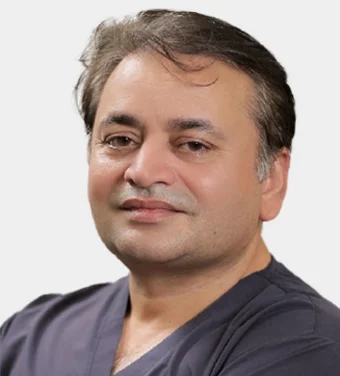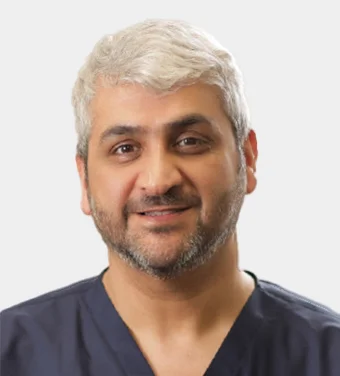
At IBS Hospital, our approach to Craniopharyngioma involves cutting-edge surgical techniques,ensuring maximum tumor removal with minimal impact. Our dedicated team offers personalized care, focusing on patient well-being throughout the treatment process.
What is Craniopharyngioma?
Craniopharyngioma is a non-malignant brain tumor that develops near the pituitary gland. It is quite rare and tends to grow at a very slow pace. The tumor can press against the pituitary gland and disrupt its functioning. It can also affect the cranial nerves that regulate vision and various important hormonal functions. Although craniopharyngiomas can affect people of any age group, they are most commonly diagnosed in children between the ages of 5 to 14 years and in elderly people over the age of 50. In fact, craniopharyngiomas account for about 6 percent of all brain tumors found in children.
What are the symptoms of Craniopharyngioma?
The most common symptoms associated with Craniopharyngiomas, which you should watch out for, include:
- Severe and persistent headaches.
- Confusion and unusual changes in behavior.
- Problems related to balance.
- Increased urge to urinate.
- Constant thirst.
- Altered vision.
- Nausea and vomiting.
- Delayed growth.
What are the causes of Craniopharyngioma?
The exact underlying cause of craniopharyngiomas is not known; however, these tumors are believed to result from uncontrolled cell multiplication, which can be triggered by a variety of factors. The malignant cells resulting from this multiplication tend to have a longer lifespan compared to healthy cells, leading to their accumulation and the formation of a mass or lump.
How is Craniopharyngioma diagnosed?
If you are experiencing any symptoms associated with craniopharyngiomas, your doctor will conduct a thorough physical;and cognitive examination to assess the symptoms and their progression. The patients medical history will be evaluated to rule out other conditions and assess risk factors.
Certain diagnostic modalities may also be recommended, which include:
- Blood and urine analysis to assess hormone levels and kidney function
- Computerized Tomography (CT) scan
- Magnetic Resonance Imaging (MRI)
- Biopsy for tissue sample analysis
- Hormone profile
How is Craniopharyngioma treated at IBS Hospital?
The standard treatment option for patients with craniopharyngiomas is surgery, which aims to resect the tumor. Various approaches can be used for this purpose. The surgery can be performed transnasally, i.e., through the nasal opening, or via endoscopic assisted craniotomy. The goal of the surgery is to remove as much of the tumor as possible to relieve pressure on the pituitary gland and other vital structures. Following surgery, the patient may need to take hormonal medications and undergo radiation therapy to destroy any remaining abnormal cells.
Our team of experts that make it possible
Meet the team of highly specialised and experienced neurosurgeons, neurologists, orthopedicians, and other experts in the field of neurology and spine care. Our team is dedicated to providing personalised and compassionate care to each patient, with the goal of helping them achieve the best possible outcomes.

Dr. Vikas Gupta
Senior Neurosurgeon

Dr. Dewaker Sharma
Senior Neurosurgeon

Dr. Sachin Kandhari
Senior Neurosurgeon

Dr. Anup Gogoi
Senior Neurosurgeon

Dr. Ankur Dhandha
Anaesthetist

Dr. Gaurav Sharma
Senior Sports Physiotherapist

Dr. Sachin Samuel
Senior Neuro Physiotherapist

Dr Ankush Arora
Anaesthetist

Dr Amarjyoti Yadav
Anaesthetist
IBS Hospital Empowers Your Treatment with Cutting-edge Technology
We continuously incorporate cutting-edge technologies from around the world into our offerings, such as a surgical system that allows for precise and confident complex procedures. We use magnetic stimulation to treat certain neurological conditions and create personalised brain maps for tailored treatment plans. Nerve monitoring during surgeries ensures the nervous system is not compromised, and a robotic exoskeleton aids in mobility issues. Our goal at IBS Hospital is to provide the best care possible, utilising the latest and most innovative technologies available.


